This summer’s Esports World Cup (EWC) was held in Riyadh, Saudi Arabia – between July 3 and August 25. The event boasted the largest prize pool in esports history ($60 million). It also generated 103 million hours (about 12,000 years) of content watched, not counting Chinese viewers.
Where Sony, Mastercard, and Adidas signed up as EWC partners.
Similarly, Insider Intelligence estimates that esports advertising revenues grew to $264.3 million in 2023.
So, the following guide clarifies and simplifies esports marketing. The objective is to shape how you think about the different marketing strategies that tap into esports to reach gaming audiences.
If you’re new to esports and gaming, please complete The Gaming Marketing Dictionary (click here for the full-length YouTube video) to ensure you understand core concepts and models referenced below.
Getting Started
ChatGPT describes esports as “organized, competitive video gaming where individuals or teams compete against each other in various video games.“
Said differently, esports are defined by multiple competitive video game behaviors. The same way that sports are a variety of competitive physical games.
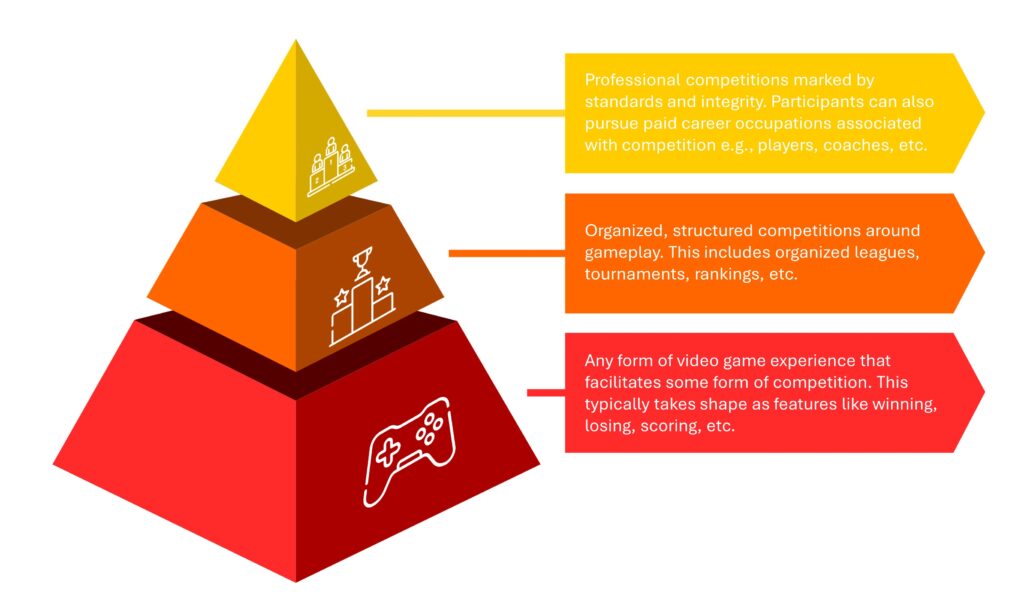
Along those lines, let’s introduce the esports pyramid model. The bottom layer, illustrated in red, represents any form of video game experience that facilitates some form of competition. This typically takes shape as in-game features like winning, losing, scoring, and so forth.
The middle layer stands for organized, structured competition around gameplay. This includes organized leagues, tournaments, rankings, etc.
The top layer, shown in yellow, represents professional competition marked by standards and integrity. This is typically called professional gaming since it is where participants can pursue paid occupations associated with competition.
Let’s also clarify that viewership is a prominent media behavior typically associated with the top layer of the esports pyramid. Where viewing audiences consume hundreds of millions of hours of professional esports content yearly.
However, esports are much bigger than any single media behavior. Such that, esports marketing encompasses tapping into behaviors beyond just viewership.
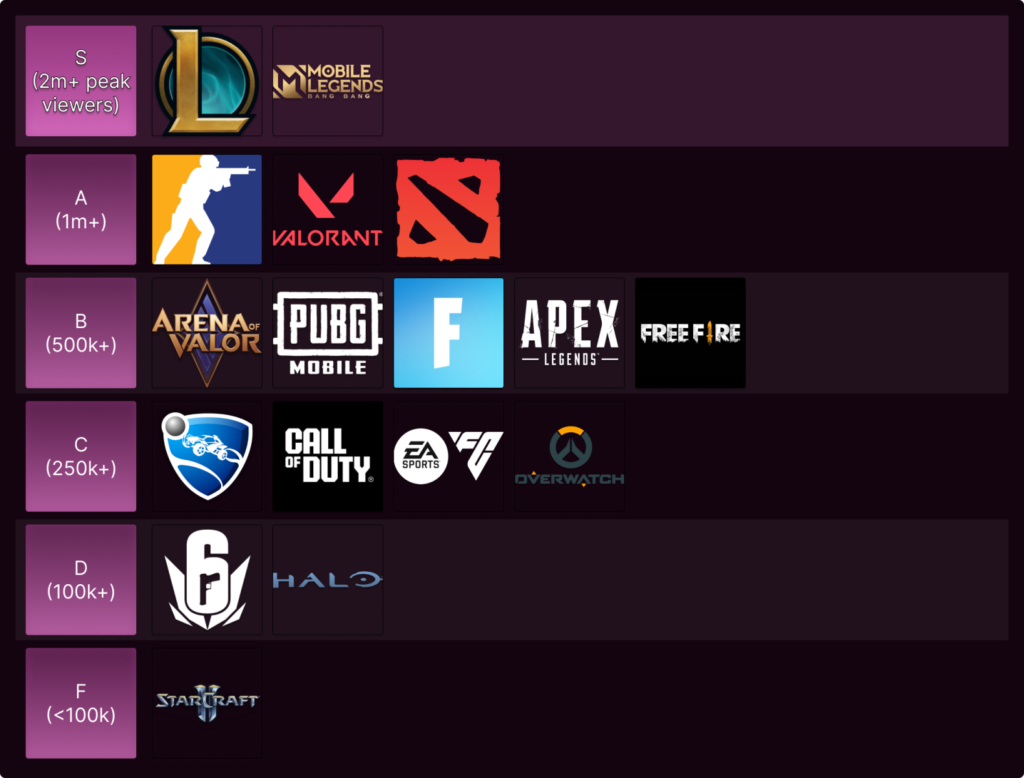
In other words, the esports community includes many different forms of competitive gaming. So, your focus, as a marketer, should be on which form of competition fits your intended actions – as opposed to what is the most popular, which game has the biggest viewing audience, etc.
It is also important to realize that while the most prominent examples of esports are professionalized. Most competitive gaming occurs below the professional level. So, once again, esports marketing is bigger than advertising related to professional gaming.
That said, let’s define esports marketing as a specific form of gaming marketing that taps into existing or creates new competitive game experience touch points.
Esports marketing – the practice of tapping into existing or creating new competitive game experience touch points to inspire action
To illustrate what this practice looks like – let’s explore three brand activations from US-based fast casual restaurant Chipotle.
Chipotle’s Tekken 8 Rewards
In April 2024, Chipotle announced a series of activations, executed by rEv/XP. The activations were tied to Chipotle’s official partnership with Tekken 8, a fighting game published by Bandai Namco Entertainment America Inc.
For those unfamiliar, Tekken is a fighting game franchise centered on player-vs-player battles. In Tekken game titles, players control characters with martial arts abilities. Where the goal is to deplete the opponent’s life bar and thereby win the match.
The series started as an arcade game released in the 1990’s. Today, it is one of the top three best-selling fighting game franchises, having sold more than 57 million units worldwide.
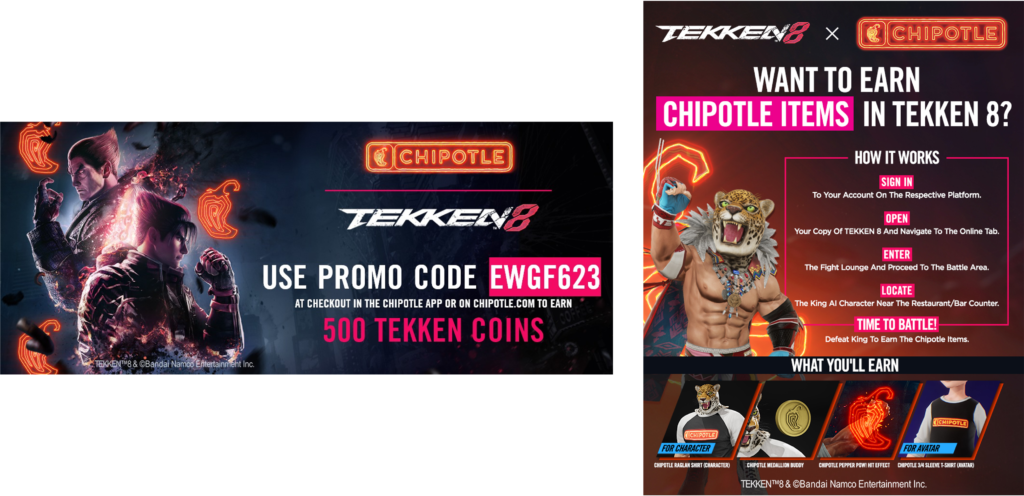
One activation allowed players to earn Tekken Coins, the game’s virtual currency, when they order through the Chipotle app or website using a promo code inspired by the game’s “Electric Wind God Fist” move.
In addition to gaining in-game currency by ordering food, the promotion also empowered players to earn branded items by defeating the King AI character in competitive gameplay.
Everything from virtual currency to the AI controlled character are part of Tekken’s playable experience, which is itself competition oriented.
In other words, both activations are rooted in the first layer of the esports pyramid, which covers all game experiences with competitive themes.
Key takeaway: By tapping into competition-oriented Tekken touch points, Chipotle’s activations meet the criteria for esports marketing.
Chipotle Challenger Series – Tekken 8
In April 2024, Chipotle announced a series of activations, executed by rEv/XP. The activations were tied to Chipotle’s official partnership with Tekken 8, a fighting game published by Bandai Namco Entertainment.
For those unfamiliar, Tekken is a fighting game franchise centered on player-vs-player battles. In Tekken game titles, players control characters with martial arts abilities. Where the goal is to deplete the opponent’s life bar and thereby win the match.
The series started as an arcade game released in the 1990’s. Today, it is one of the top three best-selling fighting game franchises, having sold more than 57 million units worldwide.
The 2024 edition of Chipotle’s signature esports competition, the Chipotle Challenger Series, was hosted in partnership with Sony Interactive Entertainment. It was the first-ever branded tournament on the PlayStation Tournaments platform and featured TEKKEN 8 as its title game.
The two winners of the Chipotle Challengers Series Grand Finals received:
- Free Chipotle for a Year
- A trip to Evo 2024 in Las Vegas
- A share of $20,000 cash prizing, and more.
Meanwhile, all eligible competitors earned free chips and guac from Chipotle.

Chipotle Challenger Series introduced an organized competitive Tekken experience to amplify its commitment to the Fighting Gaming Community (FGC).
Once again, this activation did not revolve around viewership behaviors. Instead, it was about creating a branded competitive game space relevant to target Tekken audiences.
That space provides an organized structure around Tekken gameplay and embodies the esports pyramid’s middle layer.
Most importantly, by providing real value through, and an exclusive experience within, that space, Chipotle’s esports marketing strengthens its connection with those audiences as well as the wider FGC.
Key takeaway: Chipotle organized a competitive tournament that effectively engaged target audiences within the FGC community – without tapping into viewership behaviors.
Chipotle’s Evo Partnership
Every year, the Fighting Game Community (FGC) comes together at Evo, the world’s premier fighting game tournament. Held from July 19th through the 21st, at the Las Vegas Convention Center, Evo 2024 was presented by Chipotle. The event saw a record-breaking 10,240 individual players attend and compete across 8 game titles.
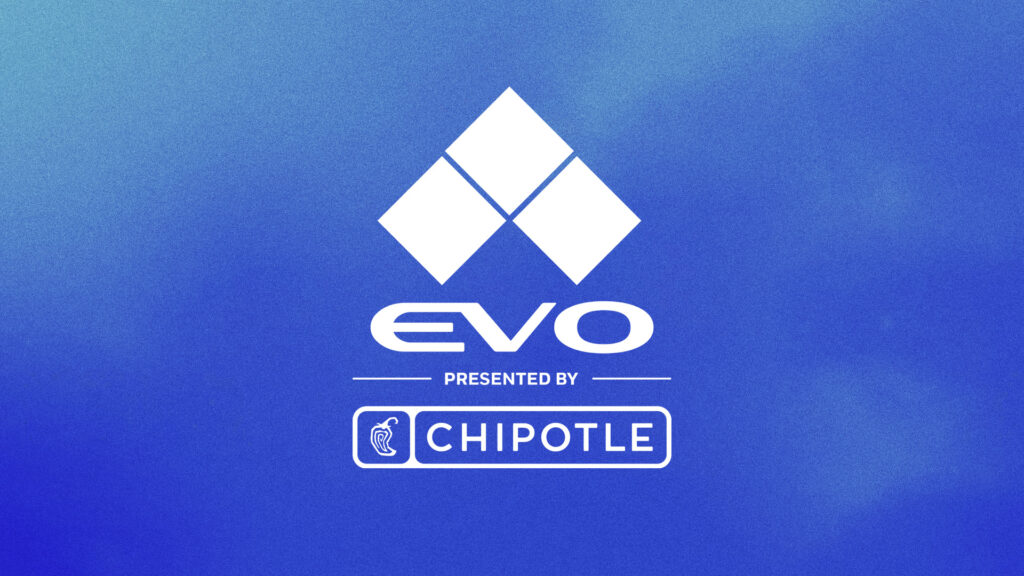
Among that number, the best professional gamers in the FGC vied for a chance to be crowned champion. Evo is an example of the top level of the esports pyramid. Where the best of the best competes to be crowned champion.
At Evo, Chipotle sponsored a lounge where attendees could participate in Tekken 8 tournaments, win custom Chipotle sling bags, and relax in a comfortable environment. The Chipotle Community Lounge, as it was called, became a hub for engagement, connection, and cultural exchange.
Evo is both a community gathering and a premier global competition. Where, in addition to on-site brand presence, Chipotle’s partnership delivered visibility across a three-day event that generated 6.88 million hours (about 785 years) watched – according to Esports Charts.
Key takeaway: Evo is a pro-am esports event – open to both professional and amateur gamers. This hybrid model is unique to the FGC, which has a long history of grassroots competitions. Chipotle added value to the event experience and, in turn, weaved its brand into the very fabric of FGC culture.
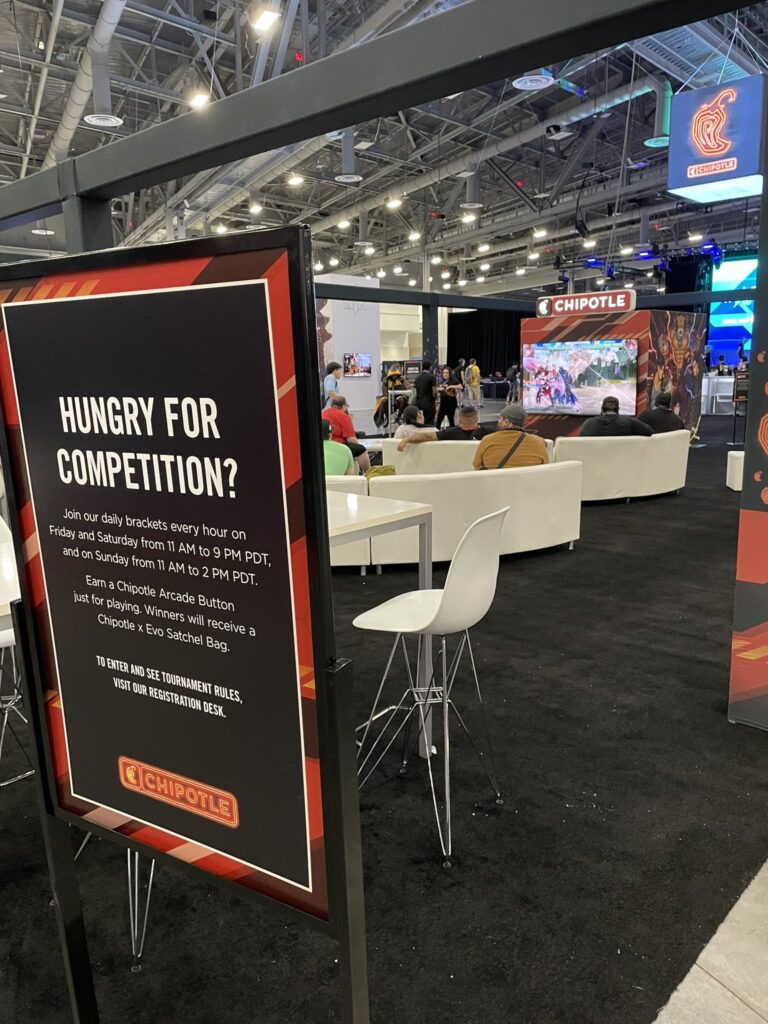
Also, remember to subscribe to our YouTube channel to keep up with the latest gaming marketing insights and trends!

